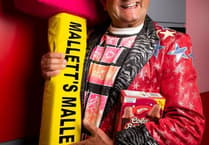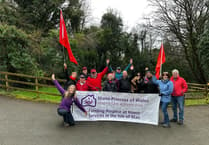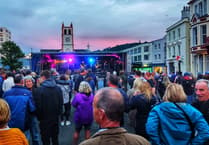The Infrastructure Minister has hailed the bus fare cap initiative a ‘success’ despite it failing to encourage more people to take the bus.
Chris Thomas was responding to a question in the House of Keys on Tuesday about how successful the trial that saw a cap of £2 being put on fares was.
The scheme was announced last year as part of a package of measures designed to support people and businesses through the winter and into spring.
He said: ‘The £2 bus fare capping trial was successful as part of the cost of living response by government to reduce the cost of living for residents of the Isle of Man.
‘Travellers have been paying less for travel on buses during the most recent five months.
‘It is clear, however, that while it has enabled regular bus users to save money and perhaps take more journeys and has benefited those that make longer journeys most, it has unfortunately not resulted in a modal shift for regular journeys.
‘It has not increased bus use unfortunately.’
Following a question from Douglas South MHK Claire Christian, he revealed that usage hadn’t even returned to pre-Covid levels.
Douglas North MHK David Ashford congratulated the minister for ‘portraying as a success a trial that was supposed to encourage more people onto buses and didn’t actually do so’. He said that there was no benefit for those living in Douglas and Onchan and travelling around those areas who are ‘a large proportion of the bus population’, and suggested this could be the reason for this ‘wasn’t a success’.
The MHK added that this was ‘highlighted many times ahead of the trial’.
Mr Thomas said in response: ‘There were 10,000 extra journeys a week paying the £2 bus fare. Overall, passenger numbers didn’t increase.
‘People who would have travelled inside the £2 bus cap limit area would have also enjoyed the same financial savings of the last five months of those fares.
‘But £141,000 was made available as part of the cost of living response and in those terms, that £141,000, plus extra, has been spent to allow people to live more cheaply, those who travel by bus.
‘Unfortunately there wasn’t a substantial, or even any really, change to bus use for the five months in the winter.’
The minister explained that this trial was a ‘cost of living response primarily’.
When asked how much money was lost in the scheme, Mr Thomas said revenue was down by around £250,000 across the five months, representing £50,000 per month.
‘There have been discussions about use of other funds for this pilot and those discussions can continue but the net result is that the bus service has lost revenue of £250,000 at least during this five-month trial,’ he said.
‘It seems that use of the bus service will be encouraged by better route networks, services that work better for people and those sorts of arrangements, and that’s exactly what we’re trying to do with our bus review.
‘We need to work on making bus travel more attractive for people and encourage a modal shift.’
The trial was originally extended to March from an original end date of January.
Mr Thomas said that his department had gone back to Treasury and the Council of Ministers to discuss a second extension, which was rejected.
He put into perspective how difficult it is to encourage people onto buses, saying that two thirds of people in the Isle of Man use cars daily, while only one in 10 never use a car.
Meanwhile, two thirds of people never use a bus and one in 20 uses one regularly.




